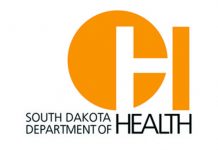The Substance Abuse Interim Study introduced four bill drafts for the 2017 Legislative Session. The committee invited Melissa DeNoon, executive director of the South Dakota Board of Pharmacy, to educate the committee on the U.S. opioid epidemic and share South Dakota statistical information from a pharmacist’s perspective. DeNoon said that South Dakota has had an average of 10 deaths from opioids each year from 2004- 2011. The number climbed to 17 opioid deaths in 2013 and 15 opioid deaths in 2014.
DeNoon said that there are currently only 15.9 percent (3,847) prescribers in the SD Prescription Drug Monitoring Program (PDMP), but the program has recently addressed major integration concerns of prescribers and pharmacists related to accessing the program. The current system presented difficulties for both prescribers and pharmacists because it did not integrate with other medical records requiring significant time – in the aggregate – to log onto the PDMP website. Recent changes to the workflow for prescribers has made the process much less cumbersome. With the integration of PDMP software complete, Avera Health fully integrated in May and Sanford Health will fully integrate in 2017. Once the two systems are integrated into the PDMP, the number of registered South Dakota prescribers will top 97 percent.
The four proposed bills are as follows:
- An act to require prescribers to access the Prescription Drug Monitoring Program database prior to issuing a prescription to certain controlled substances.
- Eliminates civil immunity for prescribers who are not registered and who do not obtain information from PDMP prior to prescribing or dispensing a controlled substance.
- Requires prescribers to review a patient’s prescription drug record through PDMP for controlled substances referred to in SDCL 34-20E.
- Creates exceptions for patients in hospice care: Prescription is only for three days and is not subject to refill, monitored prescription is lawfully administered to the patient or due to emergency.
- An act to revise certain provisions of the Prescription Drug Monitoring Program.
- Adds the term “integration,” defined as the linking of the central repository into the electronic health records to allow health systems, pharmacies or health information exchanges to seamlessly access data.
- Requires dispensers to submit the information to the central repository within 24 hours unless the board waives the requirement for good cause shown by the dispenser.
- Updates prescription electronic reporting software.
- An act to make an appropriation to the Department of Health for the administration of a program regarding substance abuse.
- Appropriates $318,000 for the Department of Health for the administration of a program to address methamphetamine and other substance abuse issues among students.
- An Act to require the Board of Pharmacy to report to the legislature regarding opioid monitoring and use in the state each year.
- Requires the Board of Pharmacy to report to the House and Senate on the fourth Tuesday in January each year on the monitoring and use of prescription drugs. The report shall include the number of opioid prescriptions from the past three years. The report shall include an update to any changes or advances made to the Prescription Drug Monitoring Program. This bill will be repealed in June of 2022.






